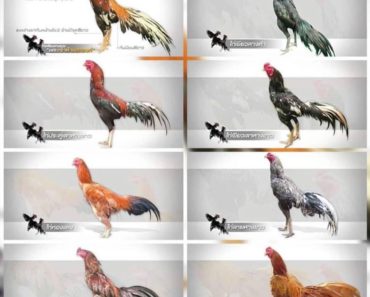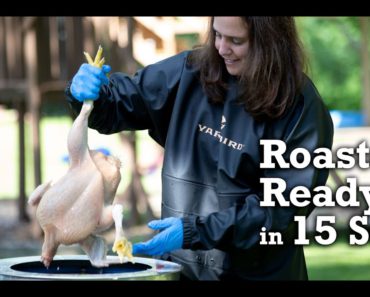Contents
- 1 Treating Wry Neck in Chickens: A Comprehensive Guide to Help Your Flock
- 2 Causes of Wry Neck in Chickens
- 3 Symptoms and Diagnosis of Wry Neck
- 4 Understanding and Treating Wry Neck in Chickens: Effective Solutions for a Common Ailment
- 5 Treatment Options for Wry Neck in Chickens
- 6 FAQ
- 6.1 What are the most effective treatments for wry neck in chickens?
- 6.2 Are there any preventative measures that can be taken to avoid wry neck in chickens?
- 6.3 Can you provide step-by-step instructions on how to properly treat a chicken with wry neck?
- 6.4 Are there any natural remedies or supplements that can help alleviate wry neck in chickens?
- 6.5 How can I prevent or manage wry neck in my flock, and what steps should I take if a chicken develops this condition?
- 6.6 Related Posts

This distressing condition, also known as crookneck or torticollis, can significantly impact a chicken’s quality of life. we will explore the causes, symptoms, and various treatment options available to help your feathered friends regain their health and well-being.
Treating Wry Neck in Chickens: A Comprehensive Guide to Help Your Flock
Wry Neck, also known as crook neck or torticollis, is a condition that can affect chickens of all ages. It is characterized by a twisted or tilted neck, making it difficult for the affected bird to eat, drink, and navigate its surroundings. If left untreated, wry neck can be fatal for chickens.
Causes: Wry neck can have several causes, including vitamin deficiencies, head injuries, genetic predisposition, or infections such as Marek’s disease. Identifying the underlying cause is crucial for effective treatment.
Symptoms: The most obvious symptom of wry neck is the twisted or tilted neck. Affected chickens may also exhibit difficulty walking, drooling, tremors, inability to perch, and weight loss.
Treatment: Treating wry neck involves addressing the underlying cause and providing supportive care to the affected chicken. If caused by a vitamin deficiency, supplementing with vitamin E and selenium can be beneficial. Physical therapy, such as gently massaging the neck and encouraging movement, can help improve muscle function.
Feeding: Since eating can be challenging for chickens with wry neck, it is important to offer easily accessible food. Soft foods like scrambled eggs, yogurt, and mashed vegetables are easier for them to consume. Ensuring they have constant access to fresh water is also crucial.
Supportive Care: Creating a stress-free environment for the affected chicken is essential. Providing a quiet and comfortable space will help reduce any additional strain. Regular check-ups and monitoring their progress are necessary to evaluate the effectiveness of the treatment.
Consulting a Veterinarian: If the symptoms persist or worsen despite treatment, it is recommended to seek professional advice from a veterinarian who specializes in avian medicine. They can provide further diagnostic tests and recommend specific treatments tailored to your chicken’s condition.
Remember, early intervention and proactive care are key to successfully treating wry neck in chickens. Providing the necessary support and treatment can significantly improve their quality of life and increase their chances of a full recovery.
Causes of Wry Neck in Chickens
Wry neck is a condition that affects chickens and is characterized by the twisting or tilting of the neck. There are several possible causes for wry neck, including nutritional deficiencies, genetic factors, head injuries, infections, and certain diseases. Nutritional deficiencies, particularly a lack of vitamin E or vitamin B1 (thiamine), can lead to wry neck. Genetic factors can also play a role, as some chicken breeds are more prone to this condition. Head injuries, such as falls or attacks from other animals, can cause damage to the neck and result in wry neck. Infections like Marek’s disease and botulism can also lead to neck abnormalities.
Symptoms and Diagnosis of Wry Neck
The symptoms of wry neck in chickens are easily recognizable and include the twisting or tilting of the neck, difficulty eating or drinking, inability to walk or balance properly, and general weakness or lethargy. To diagnose wry neck, observation of these symptoms is crucial. Additionally, a physical examination by a veterinarian may be necessary to rule out other potential causes and confirm the diagnosis. Blood tests can also be conducted to check for nutritional deficiencies or infections.
Understanding and Treating Wry Neck in Chickens: Effective Solutions for a Common Ailment
Wry neck is a condition that commonly affects chickens, causing their necks to twist or tilt to one side. It can be caused by various factors such as a vitamin deficiency, head injury, or genetics. However, it is essential to understand and treat this condition promptly to ensure the well-being of the affected chickens.
One effective solution for treating wry neck is providing proper nutrition. Ensuring that chickens have a balanced diet rich in vitamins and minerals can help alleviate the symptoms and promote a faster recovery. Adding vitamin E and selenium supplements to their feed can be beneficial in correcting the deficiency that often contributes to wry neck.
Another approach is physical therapy. Gently massaging the chicken’s neck and performing range-of-motion exercises can help improve flexibility and reduce inflammation. This should be done with caution, as excessive force may cause further harm. Consulting a veterinarian or an experienced poultry specialist can provide guidance on the appropriate techniques.
Using supportive measures can also aid in chicken’s recovery. Providing them with soft bedding can offer comfort and prevent further injuries. Elevating food and water dishes to a suitable height can make it easier for chickens to eat and drink.
In severe cases, medical intervention may be necessary. Administering injections of vitamin B complex or anti-inflammatory medications under veterinary supervision can help expedite the healing process. It is crucial to consult professionals before proceeding with any medication.
Understanding and effectively treating wry neck in chickens is crucial for their well-being. Proper nutrition, physical therapy, supportive measures, and, if needed, medical intervention are all essential components of managing and resolving this common ailment. By addressing the condition promptly and appropriately, chickens can recover and continue to thrive.

Treatment Options for Wry Neck in Chickens
1. Medication and Supplements
Wry neck, also known as torticollis, can be caused by vitamin deficiencies or bacterial infections. One treatment option is to administer medication or supplements to address these underlying issues. Vitamin E and selenium supplements are commonly recommended to support nerve health and muscle function. Antibiotics may also be prescribed if an infection is suspected. It’s important to consult a veterinarian to determine the appropriate dosage and duration of treatment.
2. Physical Therapy and Exercise
Physical therapy can help improve the condition of chickens with wry neck. Gentle neck exercises such as stretching and rotating the neck can help alleviate muscle stiffness and increase flexibility. Encouraging chickens to move and exercise freely can also aid in their recovery. Provide a spacious and safe environment where they can roam and explore, allowing them to naturally strengthen their neck muscles.
3. Dietary Modifications
Diet plays a crucial role in chicken health, including the management of wry neck. Feeding a balanced diet that includes essential nutrients is vital for preventing and treating this condition. Incorporate foods rich in vitamin E, such as leafy greens and sunflower seeds, into their diet. Additionally, adding probiotics to their feed can promote a healthy gut and overall well-being. Ensure that chickens have access to fresh, clean water at all times to stay hydrated and facilitate nutrient absorption.
Remember to consult a veterinarian for proper diagnosis and guidance on treating wry neck in chickens. With early intervention and a comprehensive treatment plan, chickens can recover and regain normal neck function.
FAQ
What are the most effective treatments for wry neck in chickens?
Wry neck, also known as torticollis, is a condition that affects chickens and causes their neck to twist or tilt to one side. It can be caused by various factors, including vitamin deficiencies, infections, injuries, or genetic predisposition. The most effective treatments for wry neck in chickens include:
1. Vitamin E and Selenium: Wry neck is often associated with a deficiency in vitamin E and selenium. Providing these nutrients through supplementation can help alleviate the condition. You can use vitamin E capsules or liquid forms and selenium drops or tablets, following the recommended dosages.
2. Nutritional Support: Ensuring your chickens have a balanced diet rich in essential vitamins and minerals is crucial. Feed them a high-quality poultry feed supplemented with fresh greens, fruits, and vegetables. Adding foods rich in vitamin E, such as sunflower seeds and wheat germ, can be beneficial.
3. Anti-inflammatory Medication: Nonsteroidal anti-inflammatory drugs (NSAIDs) like aspirin or ibuprofen can help reduce inflammation and relieve pain associated with wry neck. However, it’s important to consult a veterinarian for proper dosage and administration, as chickens have different sensitivities to medications than other animals.
4. Physical Therapy: Gentle exercises and physical therapy can aid in improving the neck’s mobility and reducing muscle stiffness. Gently stretching the neck, massaging the affected area, and encouraging movement can be helpful. However, be cautious not to cause further harm or stress to the chicken.
5. Supportive Care: Providing supportive care is essential for chickens with wry neck. Ensure they have easy access to food and water, as they may have difficulty eating and drinking due to the twisted neck. Creating a comfortable and quiet environment can also help reduce stress and aid in recovery.
Note: It’s important to consult a veterinarian for an accurate diagnosis and professional guidance on treating wry neck in your chickens. They can provide tailored advice based on the specific needs of your flock and rule out any underlying health issues.
Remember, early intervention and proper treatment can significantly improve the chances of recovery for chickens with wry neck.
Are there any preventative measures that can be taken to avoid wry neck in chickens?
Yes, there are several preventative measures that can be taken to avoid wry neck in chickens:
1. Proper nutrition: Providing a well-balanced diet is crucial for preventing nutrient deficiencies that can lead to wry neck. Make sure your chickens have access to high-quality feed that includes essential vitamins and minerals.
2. Vitamin E supplementation: Vitamin E deficiency is a major cause of wry neck in chickens. Supplementing their diet with vitamin E can help prevent this condition. You can provide vitamin E through commercial supplements or natural sources like wheat germ oil or sunflower seeds.
3. Selenium supplementation: Selenium is another important nutrient that plays a role in preventing wry neck. Selenium deficiency can lead to muscle weakness and neurological problems. Ensure that your chickens receive adequate selenium either through a balanced diet or through supplements.
4. Regular health checks: Regularly monitor the health of your chickens, especially young ones, to spot any signs of wry neck early on. Prompt veterinary intervention can help prevent the condition from worsening.
5. Stress reduction: High levels of stress can weaken a chicken’s immune system, making them more susceptible to wry neck. Provide a calm and comfortable environment for your chickens, minimizing stress factors like overcrowding, loud noises, and changes in their surroundings.
6. Genetic selection: If you are breeding chickens, consider selecting breeding stock that does not have a history of wry neck. This can help reduce the likelihood of offspring developing the condition.
Remember, prevention is key when it comes to wry neck in chickens. By ensuring proper nutrition, supplementing with essential nutrients, monitoring their health, reducing stress levels, and selecting appropriate breeding stock, you can significantly reduce the chances of your chickens developing this condition.
Can you provide step-by-step instructions on how to properly treat a chicken with wry neck?
Step-by-step instructions on how to treat a chicken with wry neck:
1. Identify the symptoms: Wry neck, also known as torticollis or crookneck, is a condition where a chicken’s head twists to one side and they have difficulty holding it straight.
2. Isolate the affected chicken: Separate the chicken from the rest of the flock to prevent any further stress or injury.
3. Provide a supportive environment: Create a warm and comfortable space for the chicken by placing them in a quiet area with soft bedding.
4. Administer supportive care: Offer the chicken plenty of fresh water and high-quality feed to ensure they receive adequate nutrition. You can also add vitamins and electrolytes to their water to boost their immune system.
5. Add vitamin E: Crush up a vitamin E capsule and mix it with a small amount of water. Use a syringe to gently administer the mixture into the chicken’s beak. Vitamin E is crucial for muscle and nerve function and can help alleviate the symptoms of wry neck.
6. Consider additional supplements: Some chicken owners have found success in treating wry neck by providing extra selenium, thiamine (vitamin B1), and vitamin D3. However, it’s important to consult with a veterinarian or poultry specialist before administering any supplements.
7. Physical therapy: Gently massage the chicken’s neck muscles in the direction opposite to the twist. This can help improve blood circulation and loosen any tension in the affected area.
8. Monitor progress: Keep a close eye on the chicken’s condition and make note of any improvements or worsening symptoms. If there is no improvement within a few days, consider seeking professional veterinary assistance.
Are there any natural remedies or supplements that can help alleviate wry neck in chickens?
Yes, there are several natural remedies and supplements that can help alleviate wry neck in chickens.
1. Vitamin E: Wry neck, also known as torticollis, is often caused by a vitamin E deficiency. Supplementing your chicken’s diet with vitamin E can help improve their condition. You can either administer vitamin E oil directly into their beak or add vitamin E-rich foods such as wheat germ oil or sunflower seeds to their diet.
2. Selenium: Selenium is another essential nutrient that can help with wry neck. It works synergistically with vitamin E and helps improve muscle function. You can provide selenium through a selenium-rich diet or by giving a selenium supplement specifically formulated for poultry.
3. Nutritional Yeast: Nutritional yeast is an excellent source of B vitamins, including thiamine (vitamin B1). Thiamine deficiency can lead to wry neck, and adding nutritional yeast to their diet can help alleviate the symptoms.
4. Herbal Remedies: Some herbal remedies have been found to be effective in treating wry neck in chickens. For instance, herbal extracts like chamomile and skullcap have muscle-relaxing properties that can help relax the neck muscles. These herbs can be administered orally or added to their drinking water.
5. Probiotics: Providing probiotics to your chickens can help improve their gut health and overall immunity. A healthy gut is essential for proper nutrient absorption, which can contribute to preventing nutrient deficiencies that may lead to wry neck.
How can I prevent or manage wry neck in my flock, and what steps should I take if a chicken develops this condition?
Wry neck is a condition that commonly affects chickens, also known as crook neck or torticollis. It causes the neck to twist or turn to one side, making it difficult for the chicken to eat, drink, and move around normally. Here are some steps you can take to prevent or manage wry neck in your flock:
1. Nutrition: Ensure that your chickens have a balanced diet rich in vitamins and minerals, particularly vitamin E and selenium. Deficiencies in these nutrients are often linked to wry neck. Consider adding supplements or feeding a diet that includes foods high in these nutrients, such as sunflower seeds and wheat germ.
2. Genetic selection: Breeding from birds that are less prone to wry neck can help reduce the risk of this condition in your flock. Avoid breeding birds that have exhibited wry neck in the past.
3. Recognize and isolate affected birds: If a chicken develops wry neck, it’s crucial to identify and separate them from the rest of the flock. This will prevent potential bullying or further injury to the affected bird.
4. Provide supportive care: Affected chickens may require additional support to manage their condition. Ensure they have easy access to food and water by placing dishes at a height that accommodates their twisted neck position. Soften their food with water or make a mash to ease consumption. Regularly clean their eyes to prevent crusting.
5. Veterinary consultation: Seek advice from a poultry veterinarian as soon as you notice wry neck symptoms. They might recommend specific treatments, including vitamin E or selenium injections, anti-inflammatory medications, or other supplements to help manage the condition.
Remember, wry neck can have various causes, including head trauma, vitamin deficiencies, or infection. It’s crucial to identify and address the underlying cause to ensure the chicken receives appropriate treatment.
Wry neck in chickens is a serious condition that requires prompt attention and proper treatment. By understanding the causes, symptoms, and remedies discussed in this article, chicken owners can effectively address this issue and promote their birds’ well-being. Remember, early detection and intervention are crucial in treating wry neck. Additionally, providing a balanced diet, appropriate supplements, and supportive care are essential for the chicken’s recovery. With proper management, dedication, and love, chicken enthusiasts can help their feathered friends overcome this ailment and lead healthy, fulfilling lives.






